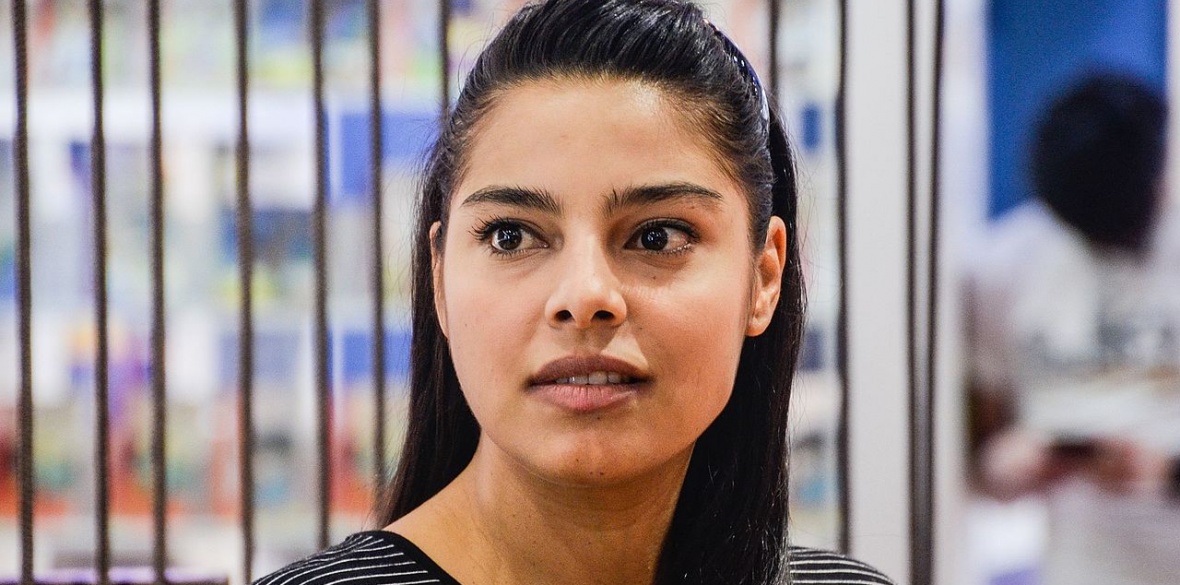This is the last article you can read this month
You can read more article this month
You can read more articles this month
Sorry your limit is up for this month
Reset on:
Please help support the Morning Star by subscribing here
Holiday Heart (Charco Press, £9.99) is the second book by Colombian writer Margarita Garcia Robayo to appear in English after her critically acclaimed Fish Soup. In her new novella, Robayo explores the slow disintegration of marriage and the experiences of a Colombian immigrant family in New Haven, US.
Precise and sharp in its use of language, it is as devastating in its emotional content and sarcastic tone. It tells the story of Pablo and Lucia — he a bored teacher forever writing a novel and she a cold and calculating journalist — who are going through a relationship break-up after years of marriage. Lucia decides to take their twins for a holiday break in Florida and there the story unravels.
Every sentence in the book seems to be written with a scalpel infused with acid. That precision permeates the narrative throughout, providing a clinical detachment to this exploration of complex issues of casual racism, Latin-American migration to the US, class and race, as well as maternal love, national identity and loss.
This is a story about personal change and failure by one of the most exciting and unique voices in contemporary Latin-American fiction today. A brilliant book.
The Fallen (Fitzcarraldo Editions, £10.99), the debut novel by young Cuban writer Carlos Manuel Alvarez, is also a book about failure — moral, spiritual and ideological — but most of all about poverty in all its forms.
This powerful story, set in contemporary Cuba, is told by four members of the same family: the son, daughter, mother, and father. Each provides an illuminating perspective on the same events, often contradicting one another. It is a compelling narrative of a family falling apart, told with love and compassion.
Mariana, the mother, suffers frequent epileptic fits and is no longer the binding force of the family, while the younger son Diego is completing his military service, where he has to deal with daily abuse, bullying and physical violence.
The father Armando has strong ideological convictions and works in a hotel where the employees are stealing food and fuel. He’s trying to keep his socialist principles alive, along with his love for the Cuban revolution and Che Guevara. But eventually he has to face up to another side of the system.
Older daughter Maria, who has abandoned her studies in search of a better life, concludes the narrative with a devastating description of the lives endured by battery chickens that serves as a perfect metaphor for the demise of her broken family.
The Guardian Angel of Lawyers (Roundabout Press, £12) is the latest short-story collection by Uruguayan writer and poet Laura Chalar.
Chalar divides her time between Buenos Aires and her hometown of Montevideo, where she works as a lawyer, and the legal profession is explored in all its facets in this perfectly crafted book of 13 short stories, each a delight to read.
Among my favourites are Head Start, about an upper-class young man who as a teenager took part in the gang rape of a local cleaning woman in a posh estancia in Uruguay, a memory that will haunt him many years later.
In Mortis Causa, a will involving an incredible library sparks a confrontation between a dutiful law student with his learned teacher and mentor, while The Guardian Angel of Lawyers sees a ghost following a young law graduate into her professional life.
Chalar has written a sparkling gem of a book where young lawyers, the legal profession and court life are mixed together in the most unexpected ways. A must-read.
Editors Loretta Collins Klobah and Maria Grau Perejoan have compiled The Sea Needs No Ornament (Peepal Press, £14.99), the first bilingual anthology of contemporary poetry by women writers of the English and Spanish-speaking Caribbean and its diasporas to be published in Britain in more than two decades.
It is a literary feast full of vibrant, imaginative voices that don’t disappoint and, as the editors point out in the introduction, those potent voices arise from a plurilingual region marked by centuries of migration patterns, conquest and colonisation by the British, French, Spanish and Dutch.
The consequence was the partial genocide of various indigenous populations, the forced trans-shipment and enslavement of African peoples of diverse heritages and languages, the settlement of Arabs, Sephardic Jews and Syrians and inter-island migration within the region and relocation to metropoles abroad.
This anthology includes 33 women poets, among them Gloriann Sacha Antonetty Lebron, Malika Booker, Vahni Capildeo, Gelsys Garcia Lorenzo, Hannah Lowe, Shivanee Ramlochan, Legna Rodriguez Iglesias, and Tiphanie Yanique.
Many themes are covered, from issues of womanhood in the Caribbean and different sexual, racial and national identities, to indigenous people’s histories and traditions.
It is an ambitious project that celebrates plurilingualism and the collaboration and communication that is expanding women’s perspectives, across language boundaries and territories, among black and indigenous people of colour. A real marvel of a book.











